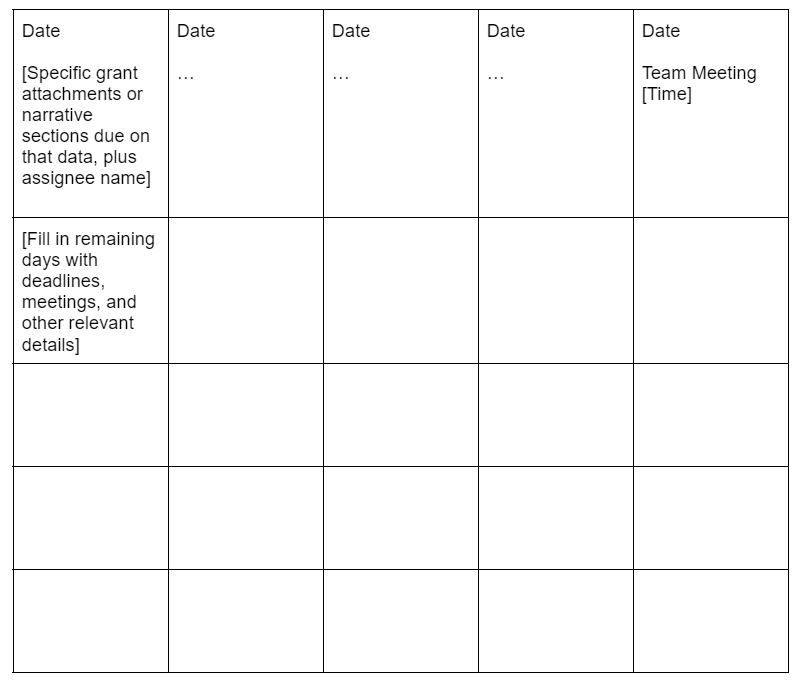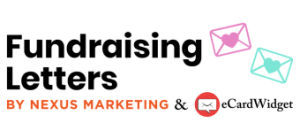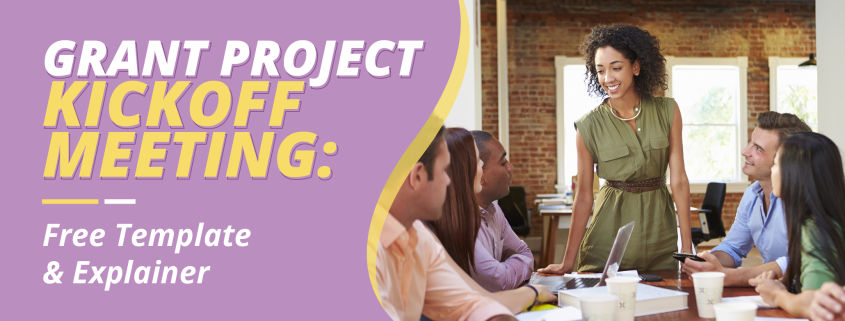Grant Project Kickoff Meeting: Free Template & Explainer
Writing a winning grant proposal is no easy feat. These projects have many moving pieces and require cross-team collaboration. Mastering grant writing means mastering organization and communication.
A successful grant writing process fosters clear internal communication from the very start. This is why grant writing experts recommend hosting a kickoff meeting for everyone who’ll be involved in the grant application process.
A preliminary meeting can go a long way to simplify grant writing, freeing up more of your mental bandwidth to craft a truly standout proposal that will win support, diversify your funding, and bring your plans to life. Let’s review how these meetings work and walk through a sample meeting agenda you can use for your next grant project.
What’s a grant kickoff meeting?
A grant kickoff meeting is a gathering of the key team members in a nonprofit who will contribute to the grant proposal in some capacity. These meetings typically involve the grant writing lead(s) and individuals from the organization’s finance, program, and leadership teams.
This meeting should occur early in the grant writing process, once the project lead has identified the grant opportunity and distilled its requirements into a detailed outline but before actual information gathering or drafting has begun.
The purpose of this meeting is to align the whole team on a few essentials, including:
- Details about the grant
- The project your nonprofit is proposing
- The grant application’s requirements
- The specific resources needed to meet the requirements
- Your schedule for meeting all deadlines
A successful meeting will put everyone on the same page with a shared understanding of the grant, your project, what’s needed from each team member, and by when. This level of organization and efficiency leads to smoother experiences and more cohesive narratives to impress funders.
As you already know, grant applications and their requirements can be complex and often lengthy. An organized agenda and clear communication before, during, and after the kickoff meeting will significantly streamline the entire process and set you up for success.
Template for your grant kickoff meeting agenda
Learn Grant Writing’s guide to writing a proposal recommends drafting a kickoff meeting agenda and sending it to all participants a day in advance. So what should your agenda include? These templates and steps will walk through the most important elements to include:
1. Meeting logistics
Start your agenda with the basic meeting logistics and key grant details that team members can reference quickly.
Date:
Time:
Grant writing lead:
Attendees:
Subject: (“Kickoff for ____ Grant,” etc.)
Title of grant:
Funder name:
Value of grant:
Final application deadline:
2. Introductions
In many cases, not everyone involved in the kickoff meeting will know each other. If you are a freelance grant writer hired by the nonprofit (or if you’re a staff member helping a freelancer set up the meeting), introductions will definitely be in order.
In any case, it’s always a good idea to start the meeting with a brief overview of each individual’s role in the organization and to establish why you’re meeting. You may even want to explicitly write out the objective and intended outcome of the meeting to give everyone an immediate shared understanding.
Objective: To review the grant requirements as a team, determine who will be responsible for which deliverables, and align on deadlines.
3. Project overview
Next, orient the team to the project being proposed, its current state, and what’s still needed to accomplish it. This section will naturally vary greatly between organizations and projects. You’ll likely want a team member directly involved in the project or program to lead this portion of the meeting.
Project overview: [Provide background information on project planning and needs]
Cost estimate:
Funding secured and sources:
Funding needed:
[Include other relevant details as needed]
4. Immediate questions
During the process of reviewing the grant’s requirements and putting together the agenda, you as the grant writing lead will likely encounter specific and miscellaneous requirements. Round up those for which you can get quick answers from the team to knock them out in one go.
Bigger or more open-ended questions can be held until you discuss the full requirements and tasks.
Quick questions:
- [List of specific questions raised by the grant requirements, for example, whether the organization is registered on Grants.gov or has a specific policy in its bylaws]
5. List of Requirements
Now you can get into the meat of the grant application: the full list of required sections and attachments that your team will need to draft or gather.
Create a simple bullet list of the specific resources that you’ll need to include in the full application. If you can, go ahead and include the name of the team member who you think will best be able to provide each resource.
Narrative and attachment requirements:
- Grant narrative – [Name]
- [Other required attachments specified by the funder, like IRS forms, other government forms, budgets, schedules, letters of support, and Board Resolutions, with names of relevant team members]
Grant databases and other resources may provide lists of opportunities’ requirements, and while these can be extremely helpful at a glance, do not over-rely on them. The grant itself is the source of truth—take the time before your meeting to read the requirements several times and copy a direct outline of what it asks of you.
6. Tasks for the complete application
In this portion of the meeting, you’ll walk through the sections of the grant requirements as a team and confirm who will be responsible for which elements.
Pre-assigning these responsibilities helps to streamline the process of facilitating the meeting and reduces extra back-and-forth. However, if you assign a task to someone who actually isn’t in the best position to handle it, take a moment to quickly decide who should be responsible for it instead.
Other open questions will likely crop up, as well, which you can likely save for the end of the meeting. The goal at this early stage is to walk through a straightforward outline as a team and divvy up tasks, not necessarily to pause and talk through granular details and strategies. Many required sections of grant proposals, like program or project budgets and impact projections, are essential for completing later sections, so it pays to get the ball rolling on them quickly.
For this portion of your agenda, literally convert the grant’s required sections into an outline, copying its language word for word. This outline will look very different for every grant you pursue, so here’s an excerpt of a general example:
Rating Factor 1
- 1.1 Organizational Capabilities
- 1.1a Managerial and Technical Staff
- Descriptions and relevant experience from the past five years on similar projects – [Name of assignee]
- 1.1b Audits
- Copies of audit results from the past two fiscal periods – [Name of assignee]
- 1.1a Managerial and Technical Staff
…
Rating Factor 2
- 2.1 Need and Extent of Problem
- 2.1a Narrative section: Need and viability – [Name of assignee]
…
Create a complete outline for your particular grant and add assignee names like in this example. This process helps ensure that nothing falls through the cracks and that your finished proposal will exactly echo what the funder is looking for.
7. Schedule
Compile all of the requirements and assignments into a comprehensive schedule. Determine due dates for individual sections and attachments based on the grant application’s final deadline (ideally aiming to get everything completed several days before the final deadline).
During the meeting, you can update any assignee names as needed but try to avoid drastically reworking your timeframes. As the grant writing lead, you’re in charge of overseeing the big picture of the project and keeping it on track.
Schedule of Deadlines for Grant Requirements

Note the inclusion of team meetings—use the calendar to centralize all relevant deadlines, meetings, and other details that the grant team will need on their radar.
A simple table or spreadsheet will work fine at this stage. You may come up with your own abbreviation or color-coding system to keep the schedule from becoming visually overwhelming, but ensure that everyone is aligned on what the system means, perhaps by including a key. You should also make sure that the calendar is easily accessible by everyone. Provide team members with both printed and digital versions of the finalized calendar.
8. Questions and next steps
In this final section of your kickoff meeting agenda, leave some time for questions that haven’t yet been covered.
You should also clearly spell out the next steps for team members, including the first upcoming deadlines, who to send which deliverables to, and the date and time of the next team check-in meeting, if it’s been determined.
Next Steps
- Next meeting: [Date and time]
- [Or, create an action item to decide on a date as a team.]
- Send all deliverables to: [Name and email address]
- First deliverables due:
- [Deliverable – Assignee name – Deadline]
Remember, clear communication will create a smoother overall grant writing process. Very explicitly spell out what you need to progress, and encourage all team members to stay responsive to requests and questions from one another as the project moves forward.
The importance of project management for grant writing
As you can tell from the kickoff meeting process, grant writing requires the right approach. Project management, a collection of logistical and decision-making skills that encompasses organization, communication, task and time management, and more, is a critical but often overlooked asset for grant writers.
For long-term success as a nonprofit professional or grant freelancer, you need the right approach and resources, like the examples in this guide. Get familiar with the components of a kickoff meeting and why it’s such a valuable exercise, and then adapt this recommended process to best suit your organization’s needs.
Stay mindful, keep improving as you go, and get ready to write a winning proposal.




